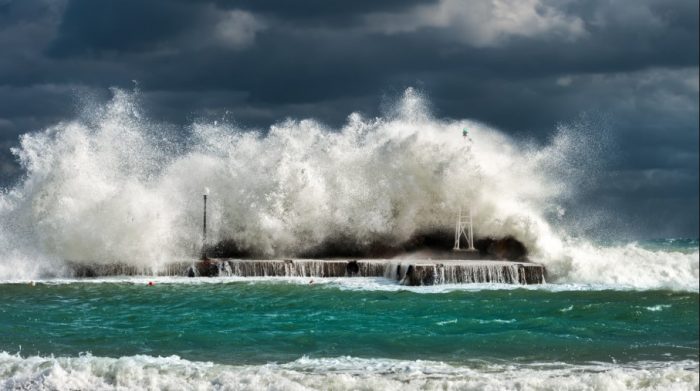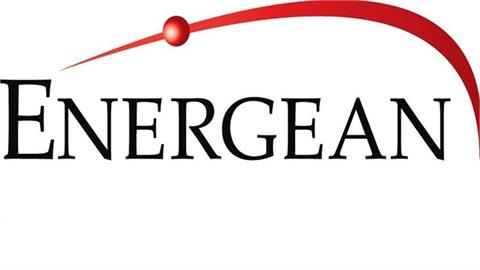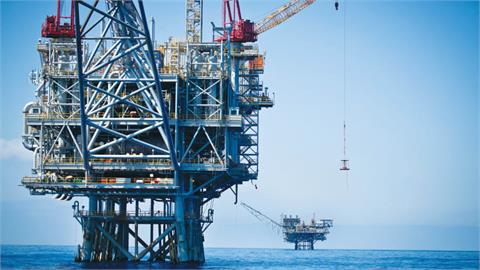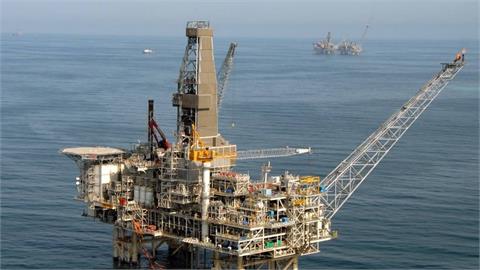On November 27, 2019, Turkey signed a Memorandum of Understanding (MOU) with Libya’s Government of National Accord (GNA), led by Prime Minister Fayez Al-Sarraj, for the delimitation of the two countries' Exclusive Economic Zones (EEZs). This agreement creates a joint maritime strip extending across the Eastern Mediterranean
Author: Hay Eytan Cohen Yanarocak Shaul ChorevBenny Spanier
On November 27, 2019, Turkey signed a Memorandum of Understanding (MOU) with Libya’s Government of National Accord (GNA), led by Prime Minister Fayez Al-Sarraj, for the delimitation of the two countries' Exclusive Economic Zones (EEZs). This agreement creates a joint maritime strip extending across the Eastern Mediterranean from the southeastern Turkish coast to the northeastern Libyan coast, in the waters between Crete and Cyprus, north of the Egyptian coast. This agreement has generated strong reactions and condemnations, most notably from Greece, Cyprus, and Egypt, whose access to this area of the Mediterranean may be directly or indirectly harmed by it. Turkey's gambit attempts to make the Eastern Mediterranean a Turkish-Libyan EEZ until a lawsuit is filed in international tribunals, a process which could take years. It threatens to turn the waters of the Eastern Mediterranean into a zone of geostrategic competition and potential regional conflict.
After many years of international deliberations, the 1982 United Nations Convention on the Law of the Sea (UNCLOS) introduced the concept of an Exclusive Economic Zone. This came in response to technological developments during the second half of the twentieth century that enabled the deep sea exploration and the extraction of natural resources from the seabed. These developments, in turn, incentivized states to claim ownership over areas outside of their territorial waters, which is limited to 12 miles from their coasts. UNCLOS responded to this by defining the range of a state's EEZ as spanning 200 nautical miles from the coast. As its name suggests, an EEZ grants a state the exclusive right to explore and use natural resources in the sea, on the seabed, and underground. According to UNCLOS, ships seeking to sail through an EEZ enjoy freedom of navigation, but the coastal state retains the right to defend its EEZ, protect it from environmental and other harm, and conduct research in it.
Despite being a signatory to the 1958 United Nations Convention on the Continental Shelf, Israel has not signed UNCLOS. However, Israel has delimited its territorial waters and EEZ in the Mediterranean through an agreement with Cyprus, in accordance with international law and established practice. Among Israel's official reasons for not signing and ratifying UNCLOS is Article 15 of the Convention concerning settlement of disputes, which could obligate Israel to abide by the mandatory procedures of the International Tribunal for the Law of the Sea, where it was likely to be subject to discrimination and thus have a weaker position with regard to claims on the delimitation of its maritime borders.
EEZs currently stand at the heart of a global disagreement concerning the scope of coastal states' rights. The very concept of EEZs is the result of a compromise between coastal states, which wanted to acquire more maritime territory and increase their opportunities for its exploitation, and other states – mostly those with large navies – which sought to limit the geographical scope of EEZs, and coastal states' control over them, in order to maintain the freedom of navigation.
Recently, however, coastal states have sought to increase their authority and turn their EEZs into a type of extended territorial waters. For instance, many coastal states require fishing boats to seek their permission before fishing in their EEZs; and ships carrying dangerous or nuclear cargo are required to notify relevant coastal states about their cargo and seek their approval for navigation. Some coastal states reserve the right to board ships with suspicious cargos. While UNCLOS grants military vessels immunity from searches, it does not clarify the status of EEZs in this regard. The United States (which isn't a party to UNCLOS) interprets EEZs as having purely economic implications; China (who is a party), and other states, interpret EEZs as granting coastal states the right to manage all activities within their territory, including military activity. The freedom of navigation is a major source of contention between the US and Chinese navies in the South China Sea.
States can declare their EEZs, but are not obligated to do so. To delineate an EEZ, a state must pass a special law that clearly defines its EEZ and the procedures for navigation within it, and submit them to the UN. This submission is for information purposes only, and does not require external approval. If two states sign an agreement by which they divide an EEZ between themselves, as Turkey and Libya have done, each state must ratify the agreement, after which it is deposited in the UN; here, too, no approval is required.
Given the Mediterranean’s relatively small size, if all Mediterranean coastal states declared their EEZs, those EEZs would span the sea in its entirety. Most coastal states have avoided such a declaration; according to UNCLOS, when EEZs overlap (which is the case in the Mediterranean), states are required to engage in arbitration with neighboring states and, in effect, give up part of their claims. Some Mediterranean states have therefore preferred not to declare their EEZs to avoid giving up territory and raising tension with neighboring countries. Greece, for example, has not declared its EEZ, because in doing so Turkey would be left with almost no EEZ of its own in the Eastern Mediterranean.
It is worth noting that the issue of territorial waters and EEZs have been the source of continuous friction between Turkey and Greece. Greece treats its islands in accordance with UNCLOS and seeks to implement a territorial water zone of 12 nautical miles, which would give it control of over 70 percent of the Aegean Sea. Turkey is only willing to accept a Greek territorial water zone of 6 nautical miles, which would grant Greece control over 40 percent of the Aegean Sea. The issue currently remains unresolved, and Turkey has clarified that Greece’s claim to 12 nautical miles of territorial waters for its islands would constitute a casus belli.
The new agreement between Turkey and Libya ignored all of these precedents. It challenges Greece's sovereignty over the waters territory surrounding Rhodes and Kastellorizo (and, indirectly, over the Aegean Sea) and increases tensions in the area surrounding Crete. Turkey's claimed EEZ also cuts off the maritime corridor between Cyprus and Greece that is supposed to contain the planned gas pipeline from Israel, through Cyprus and Greece, to Italy and Europe. Turkey’s move does not take into account the economic waters of Greece, Egypt, and Cyprus (the latter not officially recognized by Ankara), and in fact annexes them. In effect, Turkey has created a maritime border along the entire breadth of the Eastern Mediterranean. If Turkey decides to employ a broad interpretation of its rights in the claimed EEZ, it could claim the right to arbitrarily detain, investigate, search, and even stop any maritime vessel sailing east or west through the Mediterranean, including to and from the Suez Canal.
Alongside its new agreement with Tripoli, Turkey has attempted to deter its rivals by flexing its military muscles in the Eastern Mediterranean. The presence of the Turkish navy – among the largest and strongest in the Mediterranean – has been increasing since 2008. As part of the Milgem program, Turkey has built four battleships which it operates there. It also acquired two seismic and two drilling vessels to explore and produce natural gas, which have been dispatched to disputed zones with Greece and Cyprus to demonstrating Turkey's presence and undermining Cyprus' sovereignty.
Turkey has also sent bellicose messages to Greece. In March 2019 Turkey conducted a large naval exercise named "Blue Homeland," which was held simultaneously in the Black Sea, the Aegean Sea, and the Mediterranean. One hundred and three naval vessels, including frigates, corvettes, and submarines, took part in the exercise. It also included twenty-two landing ships, which simulated the conquest of an enemy island. The exercise focused on the Greek islands near Turkey's shore, such as Kastellorizo, Ro, Strongyli, Lesbos, and Chios. The Turkish Navy also simulated the interception of F-16 planes and enemy drones of the types used by NATO (of which Turkey and Greece are both members), as well as Israeli vessels and ammunitions.
Ninety-nine percent of Israel’s trade is transported by sea, making Turkey’s EEZ claims problematic. In early December 2019, a Turkish navy ship prevented the "Bat Galim" research ship, employed by the Israel Oceanographic and Limnological Research, from conducting underwater research in Cyprus' EEZ – despite the fact that this research was approved by the Cypriot government. The Turkish vessel demanded that the Israeli ship leave the waters, claiming that it was part of Turkish EEZ. Time will tell whether this is a signal for what the future holds between Israel and Turkey in the Eastern Mediterranean.
Benny Spanier is a Research Fellow at the Haifa University’s Maritime Policy & Strategy Research Center.
Hay Eytan Cohen Yanarocak is a Researcher at the Moshe Dayan Center for Middle Eastern and African Studies (MDC), Tel Aviv University and at the Jerusalem Institute for Strategy and Security (JISS).
Shaul Chorev is the Head of Haifa University’s Maritime Policy and Strategy Research Center, Chaikin Chair for Geostrategy, and Director of the MA program in "National Security and Maritime Strategy" at the School of Political Science at Haifa University. He is a former Deputy Chief of the Israeli Navy, and, from 2007 to 2015, he served as the Head of the Israel Atomic Energy Commission.
This article was originally published in December 2019 by the University of Haifa’s Maritime Policy and Strategy Research Center. For the original article in Hebrew, see here.




